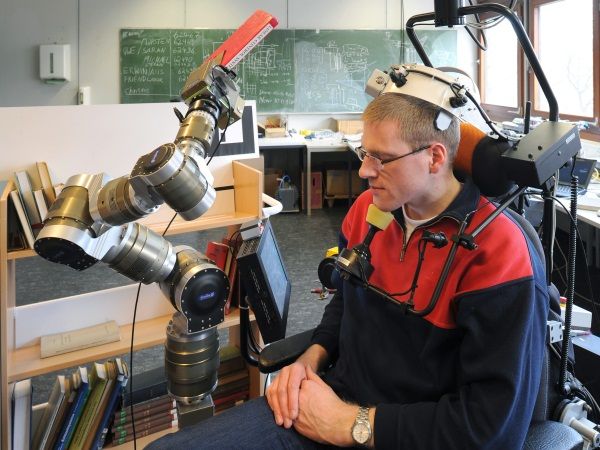In an article published in Scientific Reports magazine, researchers at the University of Minnesota have demonstrated that it is possible to control a robotic arm with thought. This research opens up many perspectives for people who are paralyzed or suffering from neurodegenerative diseases.
The robotic arm obeys the thought
According to Bin He, a professor of biomedical engineering and lead author of the study, it is the first time that "people are able to use a robotic arm to reach and grasp objects in a complex 3D environment using only Thoughts and not cerebral implantation ". The technique is based on electroencephalogram (EEG) and relies on 64 electrodes that convert intentions into action through better signal processing and automatic learning.
Eight healthy people participated in the experimental sessions of the study. They gradually learned to move their own arms imaginatively to control a robotic arm in 3D space. At first, they started by managing a virtual cursor on the computer screen. When they mastered the procedure, they were able to reach and grab objects on a table, with predefined locations. Eventually, they were able to use the robotic arm to place the objects on a three-layer shelf or a random place on the table. For the past two years, the success rate has exceeded 70%.
Now, the next step will be to make a robotic prosthesis controlled by the brain and connect it to a person's body. Scientists will also closely analyze the operation of this technology with a paralyzed person.
















0 comments:
Post a Comment